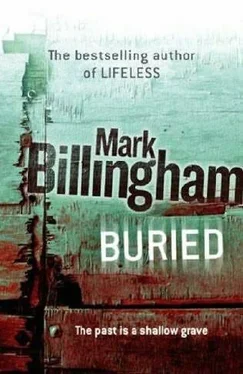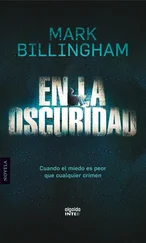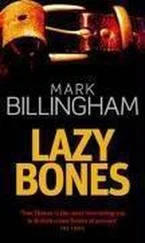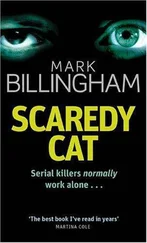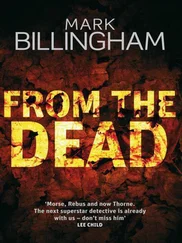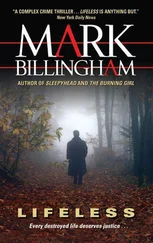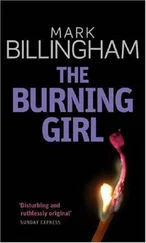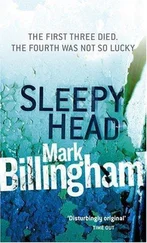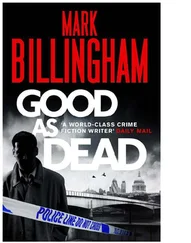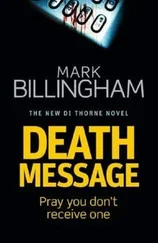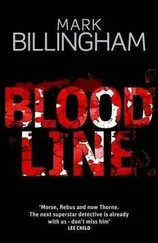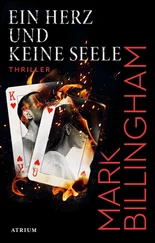‘Tell us their names,’ the driver said, ‘we drop you off near a police station and that’s it.’
Farrell wanted to be sick. And to shit, and to cry. If he told them what they wanted, how did he know that they wouldn’t hurt him anyway? He knew that if he asked the question, the beating would probably begin.
‘Two names. Say them quickly and it’s finished.’
Farrell closed his eyes and shook his head. For a wild, unthinking second or two he wanted them to hurt him. He wanted it over and done with, and being beaten seemed better than waiting.
Than not knowing…
‘I won’t allow any weapons,’ the driver said. ‘And it will be over quickly enough. But if you make the wrong choice, and it comes down to it, you need to understand that violence is never precise. It’s hard to keep things… reined in. You must know better than anyone what damage can be done with a kick or two, right?’
‘Amin tried to protect his head and it didn’t help.’
‘And there was only one person doing the kicking.’
‘Swings and roundabouts, though.’ The driver stuck the key back in the ignition, turned it some of the way. ‘If things get out of hand, I mean. If you end up damaged in some way and in a unit that’s designed for prisoners with special needs, it’ll probably be harder for us to get to you later on.’
‘Tell us their names. Last chance.’
Farrell’s mouth felt dead and scorched inside. He prised open his lips and panted, gulped and choked as he tried to dry swallow.
‘Silly,’ the driver said. ‘ Very silly.’ He swung himself around again and started the car.
Farrell screamed over the radio and, once the music had been turned down, he started to gabble, breathless, in a whisper that struggled not to become a sob. He said the names over and over until they ran into one another and became meaningless; babbling until he felt hands on his face, closing his mouth, and voices telling him to shush.
Telling him that he was still scum, still a prick and still a murderer. But at least he was not a completely stupid one.
Porter knew that she should knock it on the head. There was little point in ploughing on when she was so tired that she might well be overlooking stuff anyway. But she really wanted to get it done.
There were hundreds of files, each containing sometimes dozens of reports and assessments. There was clearly no need to read all of them, or even the majority, but it had quickly become apparent that even skimming through Kathleen Bristow’s records wasn’t going to be a five-minute job.
Client files had been organised alphabetically, and while searching under ‘F’ for Freestone, Porter had found herself reading case notes that she knew were of no real interest. She supposed that even though these were ex-clients of a dead woman, there were still issues of confidentiality. But that didn’t stop her. She was fascinated, and, on occasion, appalled. Francis Bristow had been right when he’d said that his sister had worked with more than a few ‘headcases’.
The documents relating to Grant Freestone put a little unpleasant meat on the bones of what she knew already, but there was nothing that seemed significant. There were transcripts of interviews conducted in prison, and statements from a number of healthcare professionals who’d treated him during his sentence, but there was nothing in the file relating to the Multi-Agency Public Protection Arrangements that came into force after he was released.
Porter was alone in the house. She’d brought a radio upstairs from the kitchen and tuned it to Magic FM. When the songs had become a little too soporific, she’d retuned it to Radio 1, nodding her head in time to the music as she’d hauled out batch after batch of brown and green suspension files.
She hummed along with a dance track she recognised and wondered if Thorne had managed to get away yet. Earlier, on the phone, when he’d asked her what she would be doing, it had sounded like more than just a casual work enquiry, but she’d decided not to push it. She sensed he wasn’t completely relaxed about what had nearly happened, but in that respect he was probably just an average bloke: happy enough to get into her pants but not very comfortable talking about it, or, God forbid, what might happen afterwards.
Porter finally found the MAPPA stuff in the section of files that was organised by year. There were half a dozen well-stuffed folders relating to Grant Freestone’s 2001 panel. She squatted down and sorted them into piles: ‘Risk Management’; ‘Domestic Arrangements’; ‘Community Sex-Offender Treatment Programme’; ‘Drugs & Alcohol’. She picked up the folder marked ‘Minutes’ and took out a sheaf of papers held together with a bulldog clip. Kathleen Bristow had been as meticulous as always, and the documents, most of which were handwritten, had been filed in strict chronological order. Porter flicked through to the last sheet: the minutes of the meeting that had taken place on 29 March 2001.
She recognised the names under ‘In Attendance’. There were none listed under ‘Apologies for Absence’…
Porter stared at the date.
Sarah Hanley had been killed on 7 April, nine days after the meeting. The panel had met weekly until this point and there was no record in these minutes of the decision to tell Hanley about Freestone’s past; the decision that was widely regarded as the reason she had ended up dead. Porter went through the sheets again, sensing that there should have been one more, checking that she hadn’t missed it.
Of course, after what had happened, Kathleen Bristow might have decided that the final meeting was one for which she wanted no record.
It might also have been what her killer had been after.
Porter made a mental note to check with Roper, Lardner and the others, to confirm that a meeting had taken place on 5 April, two days before Sarah Hanley’s death.
Energised suddenly, but still as knackered as she’d felt in a long time, Porter sat back against a filing cabinet. She reached for the folder marked ‘Drugs & Alcohol’, thinking that either would be more than welcome.
Farrell felt a jolt of something like hope when the car drew close to Colindale station. He’d held his breath for most of the journey back, but suddenly started to believe that his ordeal would soon be over.
The place he’d been so happy to walk out of an hour or so before now seemed like a sanctuary.
But the driver slowed, crept past the front entrance, then took a sharp left.
‘Please,’ Farrell said. ‘Here is OK.’
The driver ignored him, moving along the side of the station and stopping at a security barrier. He wound down the window, leaned out and punched at some buttons.
‘I don’t understand…’
The barrier started to rise.
Farrell finally thought he saw what was happening. Anger spread and hardened, cracked into a series of low curses, which grew harsher as the Cavalier turned into the backyard and he saw the officers waiting.
Saw Kitson exchanging nods with the driver as they drew to a halt.
Samir Karim slammed the car door and pulled on his jacket. He let out a long, slow breath as he walked towards Kitson. She put a hand on his arm and left it there as they exchanged a few words; watching as the two young men in the back seat moved away from the car, and uniformed officers leaned in to drag out Adrian Farrell.
Farrell struggled and swore as the handcuffs were put on, his body straining towards where Kitson and Karim were huddled, twenty feet away, near the back entrance. ‘You told me you were a cab driver, you fucker. You told me.’
Karim turned, equally angry, but marshalling it. ‘That’s bollocks. I said nothing. You took one look at me and you presumed I was your driver.’
Читать дальше
